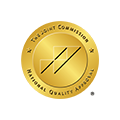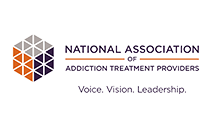Believe in Yourself
Seacrest Recovery Center OH
Providing substance abuse and mental health treatment, utilizing proven therapeutic methods and individualized treatment tailored to your specific needs
What Is Relapse Prevention Therapy?
Many addicts take the brave step of entering and completing a treatment program. Unfortunately, however, researchers have found that anywhere from 50 to a staggering 90 percent of said subjects eventually relapse.
In response, addiction treatment professionals have adopted a strategy to address such events known as relapse prevention therapy.
The Reasons Relapse Occurs
Relapse takes place when a recovering addict uses the drug they were previously dependent upon. There are several biological, physical, mental, and emotional reasons these individuals might fall prey to such misgivings and include:
Environment
Healing subjects often end up back in unhealthy, unproductive, or even dangerous atmospheres. In many instances, such locations either inspire the subject in question to rekindle their addictive desires or are so toxic individuals use as means of coping and comfort.
People
Unfortunately, an appreciable number of unscrupulous persons exist. Eliminating the presence of the negligent, selfish, or malfeasant people who once comprised an addict’s social circle often proves challenging.
Typically, these influences are strong-willed personalities possessing the ability to intimidate or manipulate the recovering subject into engaging in detrimental actions for the sole purpose of satisfying their needs and not those of the relapsing individual.
Triggers
Numerous addiction treatment specialists maintain that ridding one’s body of the dependent chemical is the first and often easiest part of the rehabilitation process. However, avoiding the mental and emotional triggers is a lifelong test of will.
Improving persons will always encounter enticements. Common prompts include:
- Locations where the addict drank or used drugs
- Memories of the events where alcohol or drugs were the centerpiece
- Painful recollections of lost family or other close associations
- Movies or music that remind one of specific occasions or bring them back to when and where their usage occurred
In truth, anything could serve as a trigger. Fortunately, addicts may be able to avoid relapse by performing counteractions designed to help them avoid such precipitators.
Mental Disorders
Mental conditions such as anxiety and depression can toy with a person’s mind to such extents that substance usage often becomes the only way to quell painful or destructive thoughts.
Pain
Physical or emotional pain often precipitates relapse. Powerful, addictive substances might help the stricken subject dull said discomfort.
Stress
Mostly everyone routinely faces typical life stressors like professional pressures, familial and community obligations, financial worries, and health concerns. That said, these burdens can sometimes prove overwhelming for healing subjects facing the additional tension of attempting to maintain sobriety.
Lack Of Sleep
Some may not believe it but sleep deprivation increases one’s chances for relapse. Insomnia often results in sleep-inhibiting events like hormonal imbalances. Moreover, the condition is known to exercise an adverse influence over an individual’s mental state and cognitive functions such as focus and judgment.
Relapse Prevention Therapy
This form of treatment, which is often abbreviated as RPT, is designed to instruct relapsing addicts how to alter their behavior and anticipate setback-inciting events.
Usually, RPT is divided into three differentiations, cognitive therapy, lifestyle modification, and the development of coping skills.
Cognitive Therapy
Cognitive therapy is a psychology practice employed to help recovering dependents address problems through the effective communication of their current emotional state.
Many addicts suppress their feelings and dwell on past events. Such practices often prove to be a breeding ground for the negative emotions that ultimately lead to destructive behaviors.
During cognitive therapy sessions, trained psychological professionals stress the importance of focusing on the present, forgetting about the past, and working towards identifying viable solutions to current issues.
Lifestyle Modification
Proponents of RPT emphasize that improving souls must establish a healthy lifestyle. This means creating a balance in one’s physical, mental, spiritual, and emotional well-being. Attaining this goal might be accomplished through actions such as:
- Consuming a healthy diet
- Obtaining enough sleep
- Relocating to a comfortable and safe living environment
- Surrounding oneself with caring individuals
- Getting adequate exercise
- Identifying productive hobbies and social activities
- Participating in mind and body-strengthening endeavors
- Above all, said subjects must obviously refrain from any type of substance or alcohol usage.
The Development Of Coping Skills
Arguably, this facet of RPT is the most difficult. It is important to reiterate that the convalescing individual will always face triggers. That said, such parties need to identify and create coping methods geared towards preventing them from succumbing to said temptations.
Contacting Us
If you or a close relation is currently in the throes of addiction, the highly-skilled, experienced, and professional staffers employed at our facility may be able to help.
Our Columbus-situated clinic boasts an impressive track record of helping youths and young adults overcome a wide array of dependencies and are confident we can yield similar results for you or your loved one. For further information, please contact us.
Today Is The Day
You Never Have To Feel This Way Ever Again
One simple call to our caring and compassionate staff, and you can be on your way to a lifetime of freedom and recovery

As Seen On Hulu
Seacrest Recovery Center is The Featured Drug & Alcohol Rehab on Jelly Roll's Save Me Documentary on Hulu Originals
Trusted Treatment Provider
Certified and Accredited Both Locally and Nationwide



Our Clients Believe In Us
And We Believe In Them!
Here Is What They Are Saying
About Seacrest Recovery
Your First Step To Recovery
Our Locations

Columbus OH

Eatontown NJ

Willard OH











